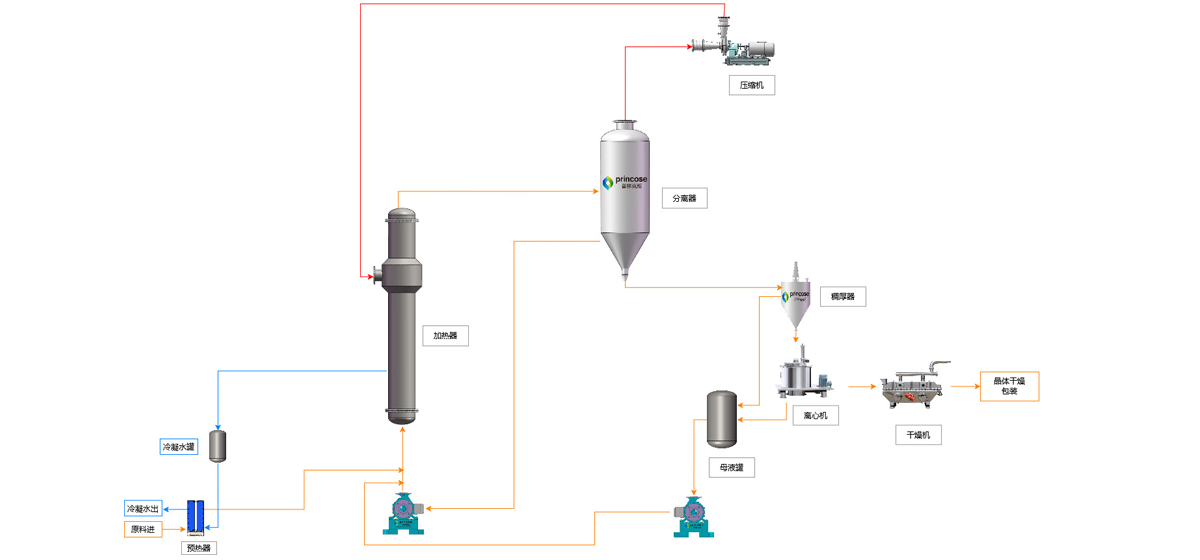The tubular MVR evaporation and crystallization system, which stands for Mechanical Vapor Recompression (MVR), involves compressing the secondary steam through a compressor. This process increases the pressure and temperature of the steam, thereby boosting its enthalpy. The compressed steam is then sent back to the heating chamber of the evaporator to serve as the heating steam, maintaining the boiling state of the feed liquid. Meanwhile, the heating steam itself condenses into water. The tubular MVR evaporator is currently one of the evaporation and crystallization equipment with better energy-saving effects. It consists of a single or connected double-effect bodies, utilizing a steam compressor to recycle and compress the secondary steam, thereby raising its temperature and achieving the purpose of reusing the secondary steam and saving energy.



The material is preheated through a preheater before entering the evaporator.

Inside the evaporator, the material exchanges heat with heating steam and evaporation occurs. The gas-liquid mixture then enters a separator for gas-liquid separation.

The generated secondary steam is compressed by a compressor to increase its pressure and temperature.

The compressed steam is sent back to the evaporator to serve as heating steam, achieving cyclic utilization.


The installation space required for an MVR evaporation and crystallization system is approximately double that of a conventional multi-effect evaporation and crystallization system. However, its operational costs are significantly lower than those of the latter.
To prevent operator errors or faults caused by incorrect operations that may lead to MVR system malfunctions, the system employs a PLC (Programmable Logic Controller) automatic control system.
Traditional evaporators use fresh steam as their energy source, whereas MVR mechanical compression evaporators consume electrical energy. Typically, evaporating one ton of water consumes between 17 and 23 kWh of electricity, and for materials with a relatively low boiling point elevation, the electricity consumption can be less than 20 kWh per ton of water. The extent of energy savings is closely related to the local prices of fresh steam and electricity. Under normal circumstances, MVR evaporators offer energy savings of over 60% compared to five-effect evaporators.
The equipment structure of MVR evaporation and crystallization systems is simple, with minimal utility requirements.
The choice of crystallizer depends on the type of crystals to be precipitated. Options include forced circulation (FC) crystallizers, Oslo (OSL) crystallizers, and DTB (Draft Tube Baffle) crystallizers.

Career
Professional
build Brilliant
Future
Proficient in industry/Achieving the future
